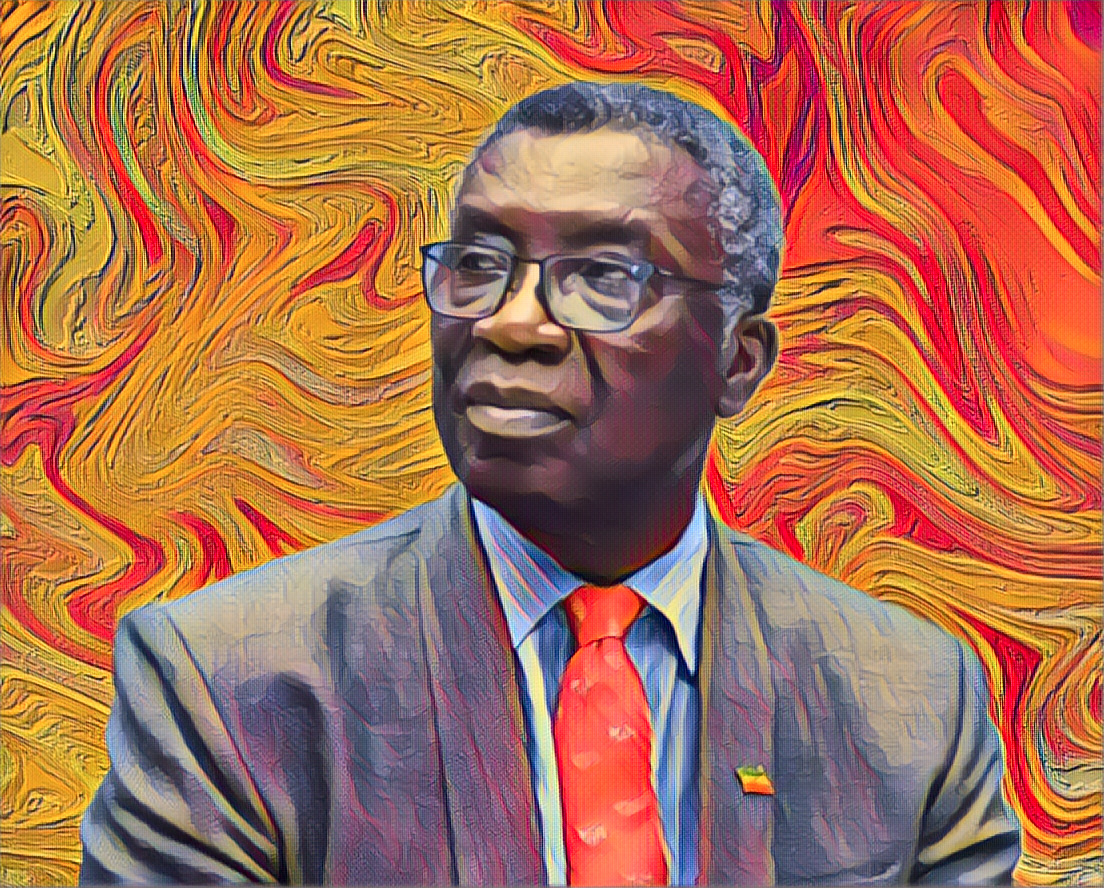Ghana’s rivers have been severely affected by illegal mining activities, also known as galamsey, according to a former minister who chaired a committee to combat the menace.
Prof. Kwabena Frimpong-Boateng, who served as the Minister for Environment, Science, Technology, and Innovation, expressed his dismay at the state of the country’s water basins at a national dialogue on illegal mining on December 4, 2023, at the Labadi Beach Hotel.
He said that most of the rivers have been polluted to the extent that they are no longer suitable for any meaningful use, such as drinking, washing, irrigation, bathing, and cooking. He added that aquatic life, including fish, has been either poisoned or killed by the contamination.
According to a report by GhanaWeb, Frimpong-Boateng also noted that traditional activities like paddling canoes have become impossible, rendering speed boats useless in water bodies tainted by illegal mining operations.
“If you look at the water basins in this country, most of them have been affected, so, the rivers, you can’t paddle any canoe on them, speed boats are useless. I mean you have heard that the Ministry of Lands and Natural Resources imported speeds boats, they cannot function on our water bodies because the water is not good for anything, you can’t drink it, you can’t wash with it, you can’t cook with it, no bathing, irrigation, and watering of gardens not possible, watering of animals not possible, fish and other creatures poisoned or dead, and tree crops are also polluted. So, what is the use of our rivers …Ghana is the only country where we have rivers but they are no use,” he lamented.
A National Crisis
Illegal mining has been a major challenge for Ghana, a West African nation endowed with rich natural resources. The practice has caused extensive environmental damage, such as deforestation, soil erosion, water pollution, and loss of biodiversity.
The government has taken several measures to curb illegal mining, such as banning the use of excavators and dredging equipment, deploying a joint military and police task force, and imposing stiff penalties for offenders. However, these efforts have not been enough to deter the perpetrators, who are often driven by poverty, unemployment, and greed.
Some of the illegal miners are also allegedly backed by powerful individuals, including politicians, traditional leaders, and foreign nationals, who provide them with financial and logistical support.
A Call for Action
The national dialogue on illegal mining, which was organized by the Ministry of Lands and Natural Resources, brought together various stakeholders, including government officials, traditional authorities, civil society groups, media practitioners, and mining experts.
The dialogue aimed to solicit views and suggestions on how to effectively address the illegal mining problem and ensure sustainable mining practices in Ghana. The participants agreed that illegal mining poses a serious threat to the country’s development and called for collective and decisive action to end it.
The government has also pledged to implement the Africa Mining Vision, a continental framework that seeks to harness the potential of mining for socio-economic development and environmental protection.
Despite the grim situation, there is still hope for Ghana’s rivers to recover from the effects of illegal mining. According to a study by the Water Research Institute of the Council for Scientific and Industrial Research, some of the polluted rivers have shown signs of improvement after the ban on illegal mining was imposed in 2017.
The study concluded that with the right policies and actions, Ghana can restore its rivers to their former glory and ensure that they serve the needs and interests of the present and future generations.




